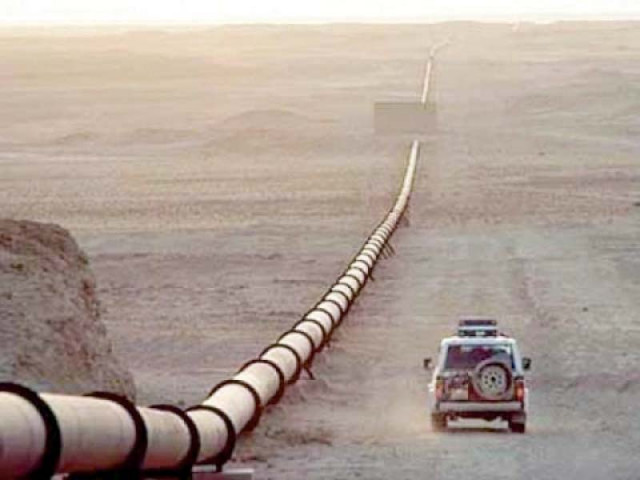Deadlock over TAPI pipeline persists
Both sides agree to appoint high-level official to resolve outstanding issues

The multibillion-dollar Turkmenistan-Afghanistan-Pakistan-India (TAPI) pipeline project remains at a standstill as Pakistan stands firm on its demand for a revision of gas tariffs and project costs.
The deadlock between Pakistan and Turkmenistan persists, with no resolution in sight.
A high-level delegation from Turkmenistan, led by State Minister and Chairman of Turkmengas, Maksat Babayev, held a meeting with the Pakistani delegation on Wednesday, led by Minister of State for Petroleum, Musadik Malik.
The discussions focused on various aspects of the flagship TAPI gas pipeline project, highlighting Pakistan’s unwavering commitment to the project and acknowledging the energy potential that Turkmenistan holds.
Malik emphasised that TAPI is not merely a pipeline but a transformation agenda for the region.
To address the ongoing deadlock, both sides agreed to appoint a high-level official from Pakistan to resolve the outstanding issues. The technical working group on TAPI will hold extensive meetings to find a way forward.
During the meeting, Malik stressed the need for Pakistan’s input in the pre-feasibility studies, the latest supply-demand analysis, and the revision of project costs and tariffs.
He emphasised that the prime minister’s directions were to hold the technical group meeting as soon as possible, with three goals in mind: minimising costs for Pakistan, ensuring the two-way channel remains open, and considering the wider regional context.
In a separate meeting at the Power Division, the Turkmenistan delegation met with Federal Minister for Energy, Khurram Dastgir, and officials from the Private Power Infrastructure Board (PPIB), Ministry of Foreign Affairs, and Central Power Purchasing Authority (CPPA).
The discussions centred around the progress and future developments of the TAPI pipeline project, as well as the mutual relations between the two countries.
The minister for energy also delivered a message from Prime Minister Shehbaz Sharif, emphasising the importance of accommodating Turkmenistan in the project.
The TAPI project faced challenges during the previous government, when the Pakistan Tehreek-e-Insaaf (PTI) government requested a revision of gas tariffs for Pakistan’s export share under the project.
Turkmenistan declined, citing concerns that fulfilling Pakistan’s demand would trigger similar requests from India and Afghanistan.
At that time, Pakistan called for a reduction in gas tariffs based on its claims of importing liquefied natural gas (LNG) at cheaper rates. Despite the change in government, Pakistan’s demand for tariff revision remains unchanged.
Pakistan’s increasing reliance on imported LNG, with a significant portion coming from Qatar, further underscores the country’s push for Turkmenistan to offer more favourable gas rates for the TAPI pipeline project. The current LNG prices have dropped to $6 to $7 per mmbtu after reaching all-time highs. With Pakistan’s reliance on imported LNG exceeding 20%, securing cost-effective gas through the TAPI pipeline becomes crucial.
As the deadlock persists, the fate of the TAPI pipeline project hangs in the balance. The outcome of the ongoing negotiations between Pakistan and Turkmenistan will determine the future of this ambitious regional energy initiative.
Published in The Express Tribune, June 8th, 2023.
Like Business on Facebook, follow @TribuneBiz on Twitter to stay informed and join in the conversation.



















COMMENTS
Comments are moderated and generally will be posted if they are on-topic and not abusive.
For more information, please see our Comments FAQ